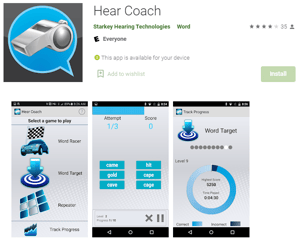Time to read: 5 minutes
It's a truth worth repeating: you hear with your brain and not your ears.
It is a concept which takes a little explaining and a lot to get used to.
Our ears are like a microphone. It sends the auditory signal to the brain. The brain then interprets the sound and gives it meaning. For example, your brain works out when someone is talking (and what they're saying), identifies the chirping of birds and knows to be on alert because you hear an alarm.
Your clever brain also knows how to prioritise certain sounds in noise - a conversation is more important than a chirping bird, but less important than a siren.
How well you do navigating through your day is all dependent on your brain actually hearing those sounds.
We have a number of articles here that talk about hearing loss.
- Hearing - which frequencies go first
- The Ear Hears, the Brain Listens
- Hearing Loss: use it or lose it
- Colds, Flu and Your Hearing
- Hearing Loss and Diabetes
- Noise hurts your hearing even if you can't hear it
- Is your motorcycle making you deaf?
- The problem with noise needs to be out in the open
- Occupations at greatest risk of hearing loss
- Signs of hearing loss
This is where hearing aids help.
Hearing aids amplify the frequencies your ears aren't transmitting as well. Your brain needs to hear those frequencies to clearly identify what all those noises are. This is especially important, particularly in speech.
We have some articles here which help explain this:
If it has been a little while since your brain has clearly heard all of these sounds, it is going to take time for your brain to recognise those auditory signals and what they mean.
The medical term for this is auditory rehabilitation.
Just like physical therapy when you're injured, your brain needs to do some exercise in order to hear at its best. The more you practice, the better you will be.
The first thing to do is talk to your clinician about tips on how to actively listen and maximise your success with hearing aids.
 We have some great articles here on what you can do to help hear your best:
We have some great articles here on what you can do to help hear your best:
- Brain training and hearing
- Why you should wear your hearing aids even when it is quiet
- Lip reading and auditory closure
- Audiobooks for hearing rehabilitation
- Getting Used to Wearing Hearing Aids
- What to expect from hearing aids if you've never worn them before
But auditory rehabilitation doesn't have to be all hard work. In fact, it could be fun!
Hearing Aid manufacturer Starkey has an app called Hearing Coach which has games and exercises designed to help you better hear speech in noisy situations. The app is available for both Android and Apple. It is free to download and you don't need to have hearing aids to use it.
Also, if you enjoy Word Search puzzles, might like Hearing Hunt.
Listen to the word clues, play against time, and earn stars while enjoying themes related to the ocean, a movie theatre, an airport, and more. Designed to work with your Bluetooth enabled hearing aid device, Hearing Hunt creates a unique auditory experience while combining the best of word searching.